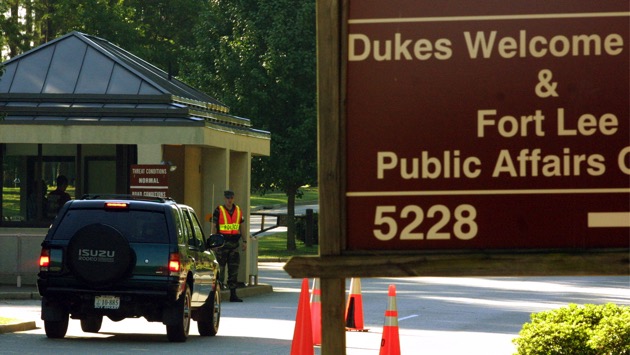(WASHINGTON) — The Pentagon will temporarily house Afghan workers who aided the U.S. military or diplomatic missions and are trying to leave the country at Fort Lee, an Army installation in central Virginia, while they complete the application process for a special visa, according to the State Department.
It is the “first tranche” of Afghans who are being evacuated by the U.S. as it completes a military withdrawal from Afghanistan, nearly 20 years after American service members first arrived to topple the Taliban government and destroy al-Qaida’s operations in the country.
But there are thousands more Afghans, including other U.S. contractors, who are desperate to exit the country and fear for their lives as the militant group takes dozens of districts by force. The House of Representatives voted Thursday to expand and expedite the Special Immigrant Visa, or SIV, program for these Afghans and create more openings as soon as possible.
The measure passed in a strong, 407-16 bipartisan vote, and now heads to the Senate where negotiations are ongoing about passage of the bill and an earlier, similar measure.
The State Department requested that the Defense Department house this initial group of 700 Afghans “who are closest to completing special-immigrant processing,” according to State Department spokesperson Ned Price, along with hundreds of their family members, for a total of 2,500 Afghans.
This group of SIV applicants have passed “thorough” security vetting and had their employment for the U.S. certified by the embassy in Kabul. But for an additional 4,000 Afghans who have not yet completed the security vetting, the U.S. will move them out of Afghanistan and to either U.S. military installations overseas or a safe third country to await their case to be adjudicated, Price also announced Monday.
John Kirby, Defense Department press secretary, said Monday afternoon that there are still other domestic and overseas locations being considered for further relocation flights.
Upon arrival at Fort Lee, the group of 2,500 Afghans will be given temporary housing and other services as they finish the last steps in obtaining a special visa — a process that should take only days, according to Kirby.
Price and Kirby declined to provide more details like when arrivals would begin, citing security concerns. President Joe Biden said flights would begin the last week of July, while the White House has said they intend to end evacuations before the withdrawal is complete, scheduled for Aug. 31.
It’s still unclear how many Afghans in total the Biden administration plans to relocate, but the president has committed to Afghans who served the U.S. mission that there is “a home for you in the United States if you so choose, and we will stand with you just as you stood with us.”
The House vote Thursday expands that pool of eligible Afghans, adding more openings to the program amid a surge of interest in the program and heightened fears across Afghanistan that the country is plunging into civil war.
There are now 20,000 applicants for the program, according to a State Department spokesperson. Roughly 10,000 still have to finish various stages of their applications, while the other half are waiting on the U.S. embassy in Kabul and the department to process their cases.
The bipartisan Allies Act, introduced by Rep. Jason Crow, D-Colo., would raise the cap on the Special Immigrant Visa program by an additional 8,000, while also removing requirements the authors said could lengthen the application process by several months.
Specifically, it would create a presumption that applicants face threats to their lives in sensitive roles as interpreters, translators or security contractors for the U.S. military, waiving the requirements that they obtain and submit sworn and certified statements.
Crow, a former Army Ranger who served in Afghanistan, said he owed his life in part to the Afghans who worked alongside U.S. troops as interpreters. His district director in Colorado, Maytham Alshadood, is a successfully resettled Iraqi who worked as an interpreter and translator with the U.S. military before immigrating.
“He’s a perfect success story to the contributions these folks can make, and they’ve already proven themselves to be patriotic Americans and people that have served the country,” he told ABC News. “We owe them a great debt.”
The bill would also expand eligibility for the program to roughly 1,000 Afghans working with nonmilitary organizations that have partnered with the United States, such as the National Democratic Institute and the U.S. Institute for Peace.
“The Taliban is not going to make a distinction between someone who was working for USAID, or a grantee of the U.S. government promoting independent journalism or women’s rights and someone who was a driver or translator,” Rep. Tom Malinowski, D-N.J., another cosponsor of the legislation, told ABC News. “So we shouldn’t make those distinctions, either.”
Earlier this summer, the House passed a similar measure that waived the requirement for applicants to receive a medical examination on the front end of the process, and would allow them to receive an exam as soon as possible once resettled in the United States.
In the Senate, both measures have the support of Republicans and Democrats, who are weighing whether to add the provisions to an emergency spending package funding the Capitol Police, which could clear the chamber before the August recess.
“There are a lot of people in Afghanistan that have been loyal to us,” Sen. Richard Shelby, R-Ala., the ranking member of the Senate Appropriations Committee negotiating with Democrats over the package, said last week. “We cannot leave them behind.”
The White House announced Operation Allies Refuge last week, and the State Department launched its task force Monday to oversee the program, with officials from the Pentagon, Department of Homeland Security and Department of Health and Human Services.
Copyright © 2021, ABC Audio. All rights reserved.













